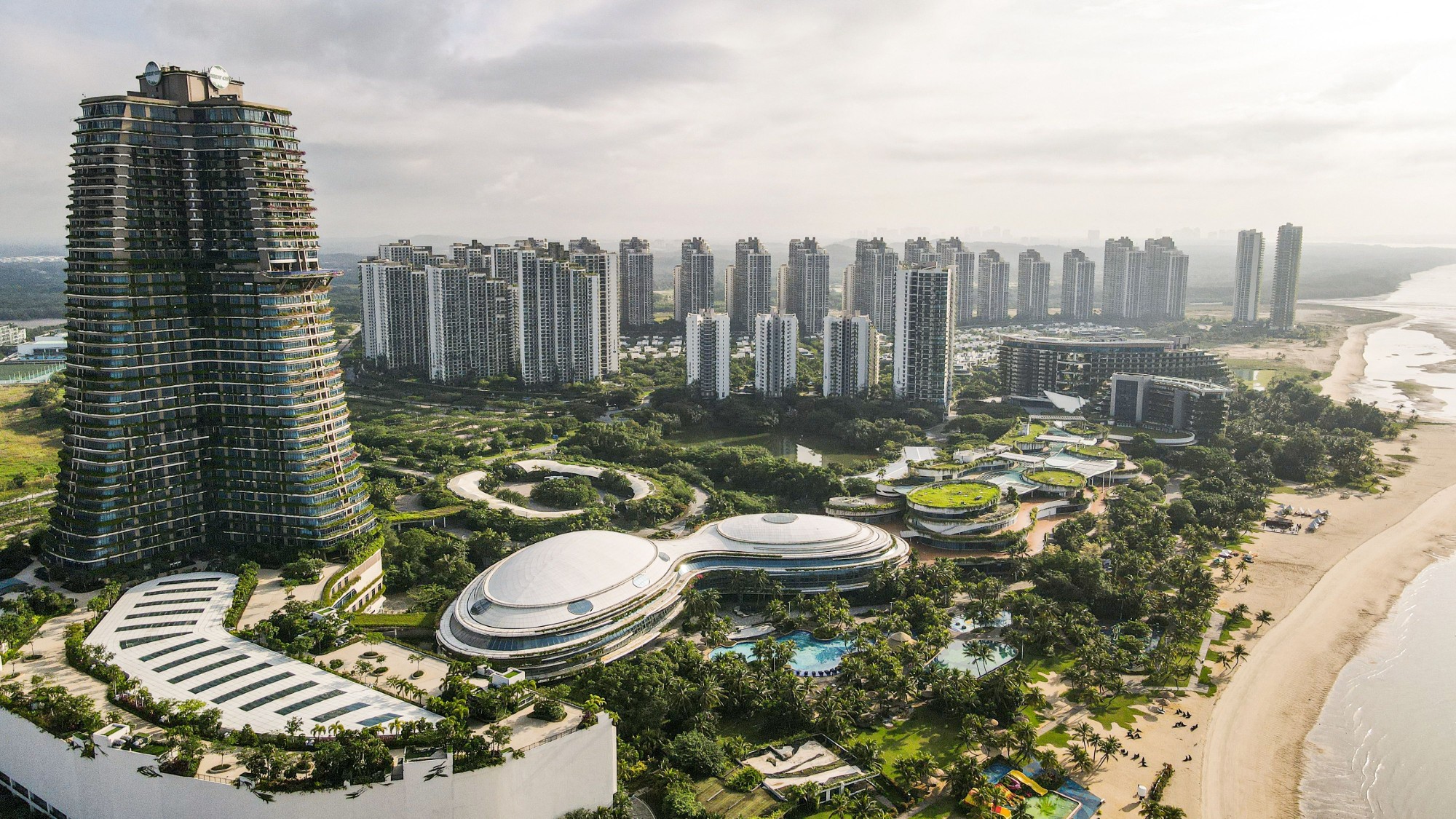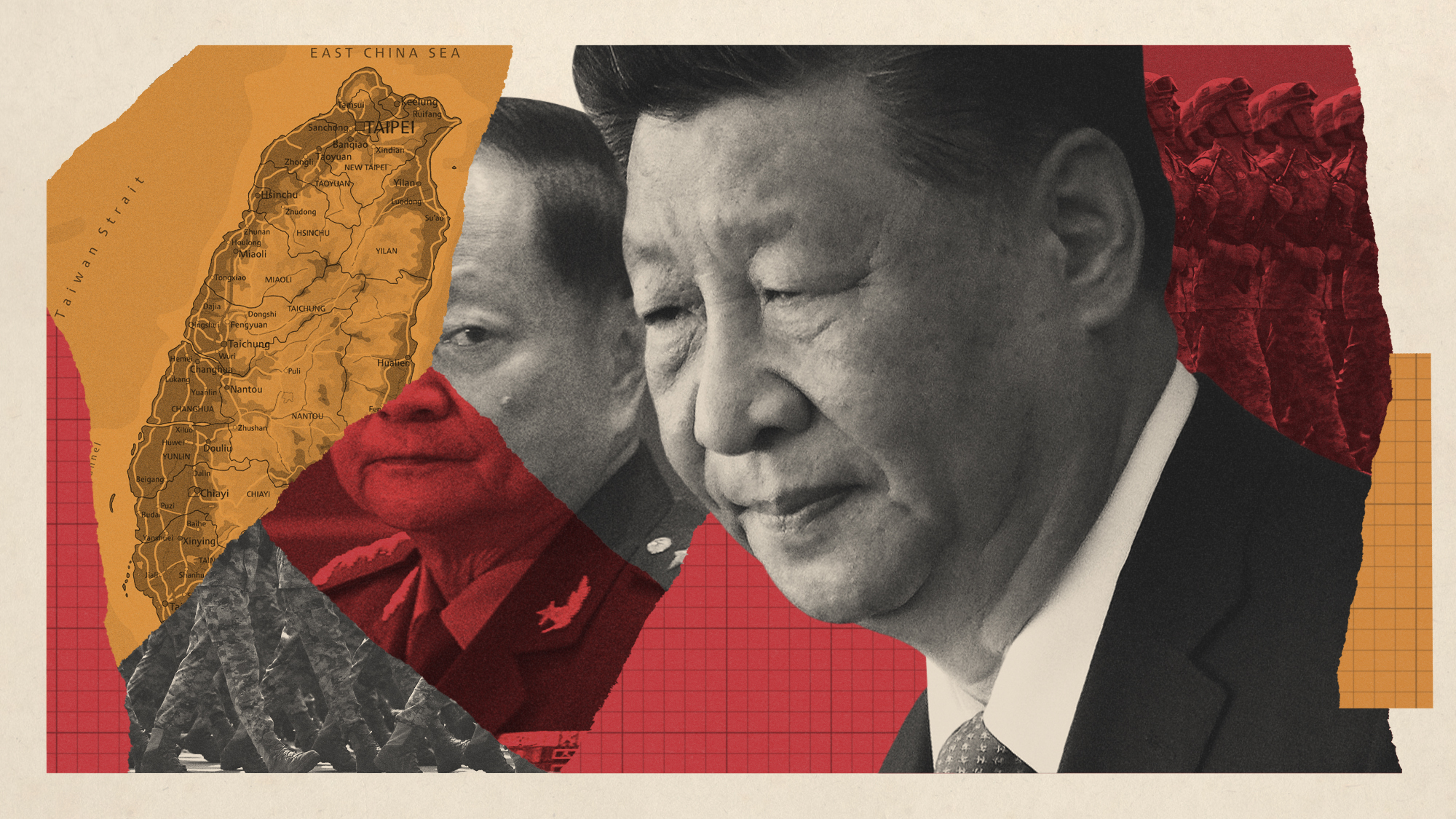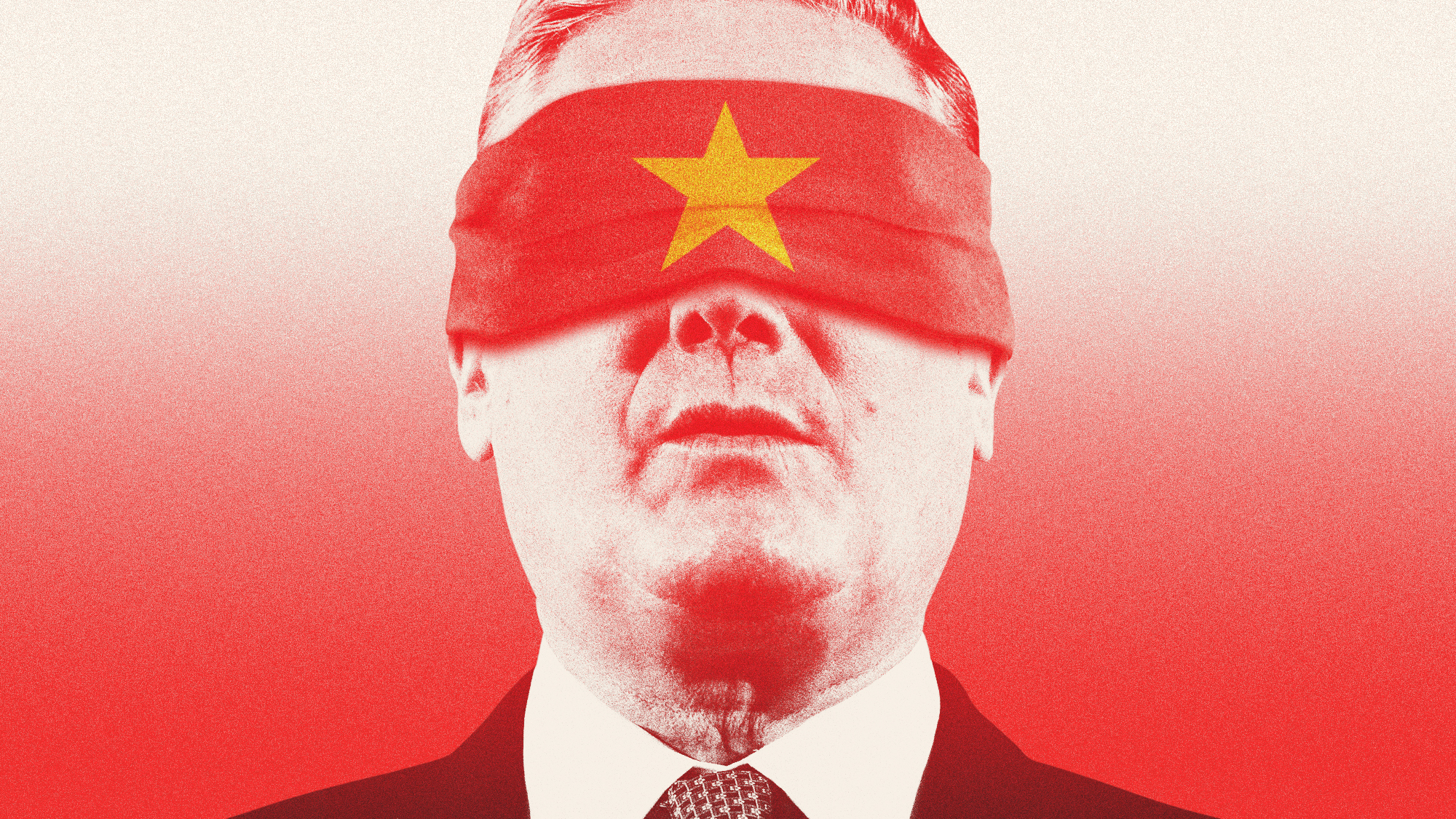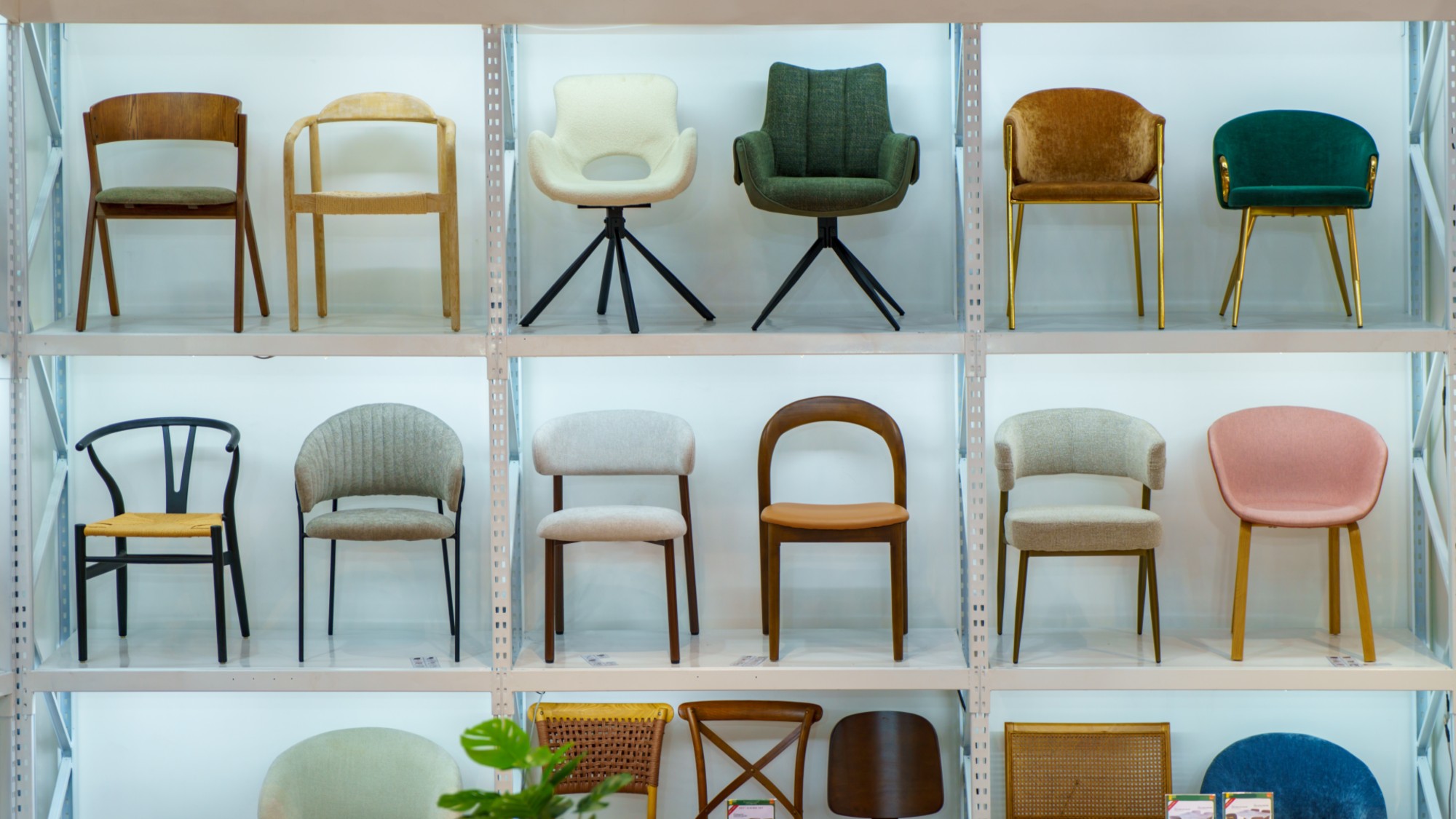The floundering Forest City
Critics argue the $100 billion project has not turned out to be the paradise it was marketed as

A free daily email with the biggest news stories of the day – and the best features from TheWeek.com
You are now subscribed
Your newsletter sign-up was successful
Malaysia's Forest City was billed as a 7,000-acre "dream paradise", with luxury apartments overlooking nearby Singapore.
Built along the coast of the southern state of Johor, the $100 billion development was launched by Malaysia in collaboration with Chinese property giant Country Garden in 2016. At the time, it was "granted duty-free status and tax breaks", Al Jazeera reported, in the hope of drawing in wealthy Chinese buyers looking for a second home.
But the "futuristic metropolis has since floundered, hampered by economic controls, local politics and the Covid-19 pandemic". The city was intended to be built across four artificial islands with a projected population of 700,000 by 2035. In contrast, "a mere 9,000 people" live in the 28,000 units built so far, said Al Jazeera, and only 10% of the project has been completed.
It is "emblematic" of the core issues behind China's property crisis, said The Wall Street Journal's Feliz Solomon: "overbuilding, overborrowing and a streak of bad luck".
Country Garden's modus operandi was the creation of low-cost apartments, and it attempted to replicate its former successes at Forest City. However, with a lack of demand and economic downturn post-Covid, the project has turned into a "ghost city", merely a "place for investors to park their money", Solomon added.
Once China's biggest private property developer, Country Garden defaulted on its debt payments in October, said Reuters, amid "mounting problems" in the country's "cash-squeezed and indebted property sector". Insiders have since told Bloomberg that it has been placed on the Chinese government's draft list of developers eligible for financing support, but the firm is yet to comment.
In Forest City, there were "signs of development everywhere", said Business Insider's Marielle Descalsota last year, but no "signs of life". Even the locals continue to remain unclear about what the project is, with one describing it as an "enclave".
There is an "unexpected" glimmer of hope, Nikkei Asia reported. The city, with its "expansiveness, buildings and scenery", has attracted TV producers from around the world for shows such as Netflix's US reality series "The Mole".
And Forest City’s regional vice-president, Syarul Izam Sarifudin, insists the development is still "on track", although he has "admitted interest in the 5,000 unsold units was lacklustre", said Al Jazeera.
Property consultant Samuel Tan was less optimistic, blaming the project's desire for a "high proportion of foreign ownership". For him, Forest City was always "doomed for failure".
This article first appeared in The Week’s Global Digest newsletter. Sign up for a preview of the international news agenda, sent to your inbox every Monday.
A free daily email with the biggest news stories of the day – and the best features from TheWeek.com
The Week
Escape your echo chamber. Get the facts behind the news, plus analysis from multiple perspectives.

Sign up for The Week's Free Newsletters
From our morning news briefing to a weekly Good News Newsletter, get the best of The Week delivered directly to your inbox.
From our morning news briefing to a weekly Good News Newsletter, get the best of The Week delivered directly to your inbox.
Rebekah Evans joined The Week as newsletter editor in 2023 and has written on subjects ranging from Ukraine and Afghanistan to fast fashion and "brotox". She started her career at Reach plc, where she cut her teeth on news, before pivoting into personal finance at the height of the pandemic and cost-of-living crisis. Social affairs is another of her passions, and she has interviewed people from across the world and from all walks of life. Rebekah completed an NCTJ with the Press Association and has written for publications including The Guardian, The Week magazine, the Press Association and local newspapers.
-
 Political cartoons for February 15
Political cartoons for February 15Cartoons Sunday's political cartoons include political ventriloquism, Europe in the middle, and more
-
 The broken water companies failing England and Wales
The broken water companies failing England and WalesExplainer With rising bills, deteriorating river health and a lack of investment, regulators face an uphill battle to stabilise the industry
-
 A thrilling foodie city in northern Japan
A thrilling foodie city in northern JapanThe Week Recommends The food scene here is ‘unspoilt’ and ‘fun’
-
 The UK expands its Hong Kong visa scheme
The UK expands its Hong Kong visa schemeThe Explainer Around 26,000 additional arrivals expected in the UK as government widens eligibility in response to crackdown on rights in former colony
-
 ‘Hong Kong is stable because it has been muzzled’
‘Hong Kong is stable because it has been muzzled’Instant Opinion Opinion, comment and editorials of the day
-
 What do Xi’s military purges mean for Taiwan?
What do Xi’s military purges mean for Taiwan?Today’s Big Question Analysts say China’s leader is still focused on reunification
-
 What is at stake for Starmer in China?
What is at stake for Starmer in China?Today’s Big Question The British PM will have to ‘play it tough’ to achieve ‘substantive’ outcomes, while China looks to draw Britain away from US influence
-
 ‘It’s good for the animals, their humans — and the veterinarians themselves’
‘It’s good for the animals, their humans — and the veterinarians themselves’Instant Opinion Opinion, comment and editorials of the day
-
 What is China doing in Latin America?
What is China doing in Latin America?Today’s Big Question Beijing offers itself as an alternative to US dominance
-
 Is Keir Starmer being hoodwinked by China?
Is Keir Starmer being hoodwinked by China?Today's Big Question PM’s attempt to separate politics and security from trade and business is ‘naïve’
-
 ‘Autarky and nostalgia aren’t cure-alls’
‘Autarky and nostalgia aren’t cure-alls’Instant Opinion Opinion, comment and editorials of the day